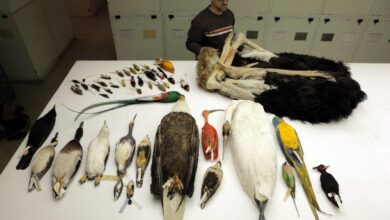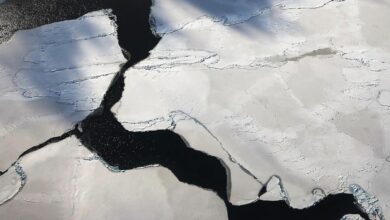Government will allow higher levels of ‘seismic activity’ at fracking sites, Jacob Rees-Mogg suggests

Liz Truss’s government is set to allow higher levels of seismic activity at shale gas drilling sites as part of its plan to lift the ban on fracking, Jacob Rees-Mogg has suggested.
Despite concerns about earthquakes, the business secretary said the current limit of 0.5 on the Richter scale was “too low”.
Speaking on BBC Newsnight on Wednesday evening, Mr Rees-Mogg indicated that the government would review the current permitted levels of seismic activity at fracking sites.
“The seismic limits will be reviewed to see a proportionate level. 0.5 on the Richter scale, which is only noticeable with sophisticated machinery, it is quite right that fracking would not take place – that level is too low,” he said.
Mr Rees-Mogg, who will set out plans to end the fracking ban on Thursday, said: “I can’t confirm a new level, because that is being looked at.”
It comes as Ms Truss defended the idea of potentially breaching a Tory manifesto pledge by lifting the ban on fracking, claiming the energy crisis is the “number one issue we face”.
The prime minister insisted she will not authorise “anything that carries a risk”, but the government is yet to produce evidence showing hydraulic shale gas extraction is safe.
The 2019 Conservative manifesto pledged not to lift England’s moratorium unless fracking was scientifically proven to be safe amid concerns over earthquakes.
A British Geological Survey review into its safety was commissioned, but its publication was delayed by the Queen’s death. It is expected to be published on Thursday, as ministers set out how it will end the fracking ban.
A leaked copy of the scientific review acknowledged that forecasting for drilling-induced earthquakes “remains a scientific challenge”. It reportedly states that there is little evidence that progress has been made in reducing and predicting the risk of earthquakes from fracking.
“Fracking is a part of the energy mix – we should be looking at all options. No option should be off the table to improve our energy security because that’s the number one issue we face,” said Ms Truss.
She told reporters travelling with her during a UN summit in New York: “We will not be going ahead with anything that carries a risk but I’m clear that energy security is vital.”
However, senior government adviser Lord Debden told The Independent there is no evidence that if the UK maximised fracking and North Sea extraction that it would have a meaningful impact on the international price of gas.
Environmental groups hit out at the government move to lift the ban, with Greenpeace energy security campaigner Philip Evans warning that drilling for more fossil fuels “will not lower bills, make us less dependent on volatile fossil fuel markets or cut our carbon emissions”.
He added: “Fracking may not even work at all. Even when the government went ‘all out for shale’, the frackers produced no energy for the UK but managed to create two holes in a muddy field, traffic, noise and a colossal amount of controversy.”
Friends of the Earth campaigner Danny Gross said fracking was the most unpopular and least effective way of generating energy in the UK, and said any attempt to water down the rules that safeguarded against the process would “only fuel its unpopularity”.
Analysis by Friends of the Earth suggested 91 of England’s 333 local authorities have oil and gas exploration licences. Some 143 parliamentary constituencies, mainly in northern England and the Midlands have licences which could potentially allow firms to examine gas reserves.
Labour’s Ed Miliband accused the government of breaking “yet another manifesto promise”, calling fracking a “dangerous fantasy”. He added: “We now have an energy policy run for big fossil fuel interests not for the British people.”





